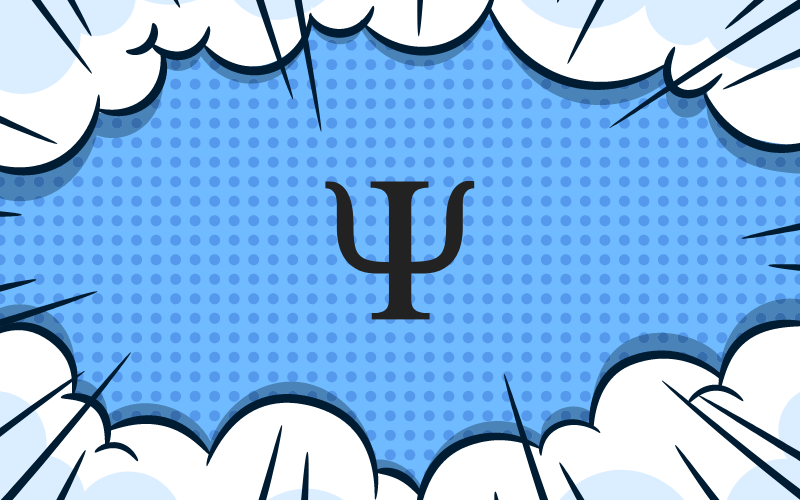The phenomenon of pop psychology is not a new concept. It’s been around since the 1960s and has been linked to the utopianism movement which encouraged its followers to forget the past and focus only on the idealistic future (Justman, 2005). The pop psychology movement thus grew as a subbranch of the self-help industry with the noble
Why Pop Psychology Misses the Mark
Written By :
Category :
posted on :
Share This :

Pop Psychology is about a Fantasy
The phenomenon of pop psychology is not a new concept. It’s been around since the 1960s and has been linked to the utopianism movement which encouraged its followers to forget the past and focus only on the idealistic future (Justman, 2005). The pop psychology movement thus grew as a subbranch of the self-help industry with the noble intention of spreading insight to folks during a time when most people didn’t have access to therapy or were concerned about the stigma of being in treatment.
Whose Fantasy are We Talking About?
Since Western psychology was originally created by a small group of white men who supported the eugenics movement, they placed little to no emphasis on the impact of social context (Yakushko, 2019; Griffin, Echegoyen, & Hyman 2020). Women, people of color, and queer folks were not allowed to participate in the building of traditional frameworks while at the same time being the subject of scrutiny. The collective wisdom from these groups continues to be absent from modern pop psychology.
What are the Goals of This Fantasy?
The self-help industry prioritizes a specific goal (like being more confident or nailing a job interview), seeks to teach the consumer why that goal is important, and then helps guide them towards reaching that goal.
Hmm…Give Me an Example:
Marie Kondo’s The Life-Changing Magic of Tidying Up prioritizes the goal of organization and provides information about achieving that goal.
It sounds nice, doesn’t it? Imagine your home perfectly decluttered. Maybe if I was organized, my relationship would be better, or maybe I would exercise more. It’s almost like everything else will be okay if we focus on this one thing that’s in our control.
Why Americans Take to Pop Psychology
As, Jesse Singal (author of The Quick Fix: Why Fad Psychology Can’t Cure Our Social Ills), said in a 2021 ABC broadcast, “I think American culture has always had this fascination, that we can just sort of manifest good things for ourselves” (Qadar, 2021).
It’s the classic American “Pull yourselves up by the bootstraps” mindset. At no point does Marie Kondo’s advice on decluttering talk about how low socioeconomic status people do not have the same financial resources as their wealthy counterparts to dedicate towards tossing away things that don’t “spark joy.”
Why is this so damaging?
The risk is the inevitable feelings of failure that a person experiences when they can’t “manifest” the dream life these pop psychology advice sources promise.
Scholars criticize the self-help industry for using psychological language to disguise the recurring trope of an “individualist ideal self,” that obscures the context of structured inequality, with the goal of becoming a better pawn in the modern capitalist economy (Riley et al., 2019).
Focusing on the individual without connection to deeper systemic issues can lead to the consumer feeling further isolation, self-blame, shame, and doubt. Of course, some tidbits of information may be helpful, but this is not the same thing as receiving real and lasting support.
These same idyllic messages about self-improvement continue to play out on the modern stage: social media. See my previous post about how pop psychology on Instagram could be harming your mental health.
References
Griffin, C.H., Echegoyen, R. & Hyman, J. (2020). The secret society:
Perspectives from a multiracial cohort. Contemporary
Pyschoanalysis. DOI:10.1080/00107530.2020.1777520
Justman, S. (2005). Fool’s paradise: The unreal world of pop psychology.
Ivan R Dee.
Quadar, S. (2021). Does self-help…help? The problem with pop
psychology. All in the Mind.
https://www.abc.net.au/radionational/programs/allinthemind/self-help-and-the-problem-with-pop-psychology/13380476
Riley, S., Evans, A., Anderson, E. & Robson, M. (2019). The gendered
nature of self-help. Feminism & Psychology, vol. 29(1)3-18. DOI:10.1177/0959353519826162
Yakushko, O. (2019). Eugenics and its evolution in the history of western
psychology: A critical archival review. Psychotherapy Politics International, 17. DOI: 10.1002/ppi.1495